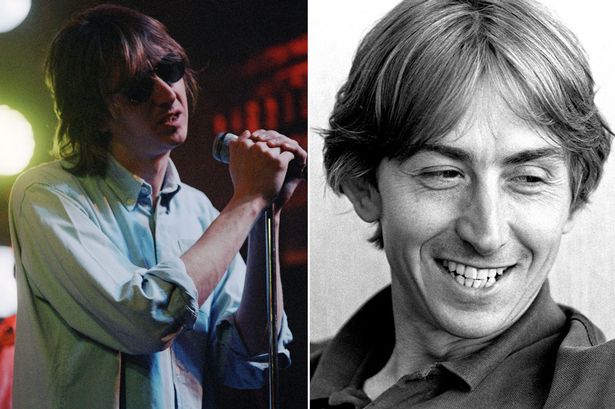
Talk Talk’s Mark Hollis was born in Tottenham in north London in 1955 and has died after a short illness aged 64.
Mark David Hollis (January 4, 1955 – February 25, 2019) was an English musician and singer-songwriter and co-founder, lead singer and main songwriter of Talk Talk. He wrote or co-wrote most of Talk Talk’s music including their hits “It’s My Life” and “Life’s What You Make It”.
Not much is known about his early life, as he was reluctant to be interviewed throughout his career and had a tendency to make up stories when he was interviewed. He told one journalist that he had dropped out of school before his final exams in High School, but told another he had studied child psychology at the University of Sussex.
As far as we know, Mark Hollis attended Tollington School, in London. Between school and the launch of his music career, he worked in factories and as a laboratory technician, but music was always what he wanted to do. Reflecting on this time in his life, he once said, “I could never wait to get home and start writing songs and lyrics. All day long I’d be jotting ideas down on bits of paper and just waiting for the moment when I could put it all down on tape!”

From the beginning Mark Hollis’s in music were very varied. The first record he bought, at the age of 12, was the Northern Soul classic Everlasting Love and his first concert was David Bowie.
When being interviewed for the Record Mirror in 1982, he said his main influences were Burt Bacharach and the counterculture icon William Burroughs, and that the best live show he’d ever seen was a performance of Shostakovich’s Symphony No 10 at London’s Royal Festival Hall.
His music career started to come to fruition when he formed a band called The Reaction. In 1977, The Reaction recorded a demo for Island Records; among the tracks was a Hollis original titled “Talk Talk Talk Talk” which later surfaced on the Beggars Banquet Records punk compilation Streets. After just one single, 1978’s “I Can’t Resist”, The Reaction broke up.
Through his brother, Hollis was introduced to musicians Paul Webb, Lee Harris and Simon Brenner, with whom he formed Talk Talk in 1981, and they soon signed to the EMI record label who hoped they could be another Duran Duran. The company even hired Duran Duran’s producer, Colin Thurston, to work on their first two singles, Mirror Man and Talk Talk.
However, Mark Hollis and the band were keen to shake off the “New Romantic” tag, even dismissing their poor keyboard player to make it clear they weren’t a synth-pop band.
The band deliberately took a year to record and shape their second album, It’s My Life, and even recorded animal noises at London Zoo for the title track.
The video for the song was compiled from clips of the David Attenborough series Life on Earth.
It’s My Life went on to become Talk Talk’s biggest hit and was later covered by No Doubt reaching the US Top 10 in 2003.
1986 saw the release of The Colour of Spring, which hinted at their musical ambitions, and based on the strength of the singles Life’s What You Make It and Give It Up, it became the band’s biggest album.
A year later, Talk Talk began working on their fourth LP in an abandoned Suffolk church. When they finally emerged 14 months later, it was hard to believe it was the same band.
Drawing on jazz-like arrangements, ambient textures and stunning orchestral arrangements, Spirit of Eden is a meditative, melancholy six-song suite that is as downbeat as it is breathtaking.
“It’s an engrossing, modern ‘head’ album, the kind of recording that Pink Floyd never became heavy enough to make,” said The Times newspaper in a typically enthusiastic review.
“I’d never heard music that dynamic while being organic. It’s such a brave record. To this day, I can hear its influence.” wrote Elbow’s Guy Garvey, who named the album Spirit of Eden his favorite in a recent edition of Q Magazine.
Unfortunately, the record performed very poorly with audiences and EMI deleted it after three months and then promptly dropped Talk Talk from their label.
Mark Hollis and Talk Talk then signed to Polydor records and released one further album, the equally ambitious Laughing Stock, before quietly splitting up and disappearing.
Hollis waited eight years before releasing his first, and only, solo album before retiring forever.
Some say he was always headed towards silence. In 1998 he said “Before you play two notes, learn how to play one note, and don’t play one note until you’ve got a reason to play it.”
There is something uniquely inspiring about a musician who actually puts a full stop on their career and there are no second-rate comeback albums or awkwardly staged reunions that will taint Talk Talk’s legacy.
On February 25, 2019, reports started online saying Mark Hollis had died, with posts from his family, collaborators and musical contemporaries acknowledging the death and offering condolences and tributes.
His former manager, Keith Aspden, finally confirmed the next day that Hollis had died after a short illness.
Later it was confirmed that Mark Hollis died from cancer, aged 64.
Check our Mark Hollis on Amazon.
If you found this article interesting please share it with your family and friends, and why not check out our other articles on Musicians who died in 2019.
.


Pingback: Musicians who died in 2019 | Dead Musicians
Pingback: Musicians who died in 2019